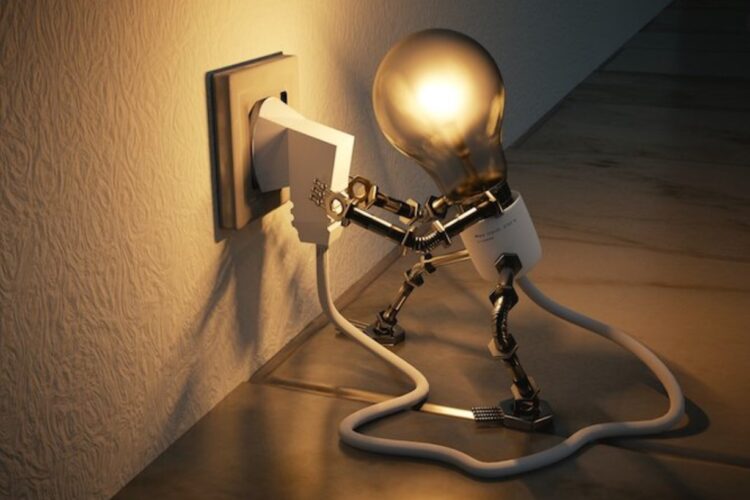
We can’t imagine our lives without some great inventions and inventors that provided them to us. The light bulb, computers, and vaccines are just some of the spectacular inventions that changed the course of history.
In the 21st century, we also have many new inventors that are trying to find some new things that will make our every day easier, help us cure diseases, and leave a print on Earth.
However, there are some common misconceptions about inventors. We all think we know some common things about them, but that is just not the case. Here are four things everyone gets wrong about inventors.
1. They are rich/make money

When we hear the word invention, most of us think about some huge discoveries. And, therefore, we believe inventors make a ton of money for what they accomplish. But the truth is, many of them ended up without receiving a penny for what they invented. It might sound unfair, but that was the reality.
The reasons for it were different. For example, Catherine Hettinger had a patent on the design of a fidget spinner. It was such a popular little toy a few years ago, and everyone was obsessed with it.
The case was that Hettinger couldn’t afford to renew the patent, which was a couple of hundreds of dollars. And that way she missed the chance of earning millions of dollars later on. Another example is John Walker who invented matches. He was worried about the safety of this invention, so he refused to patent it.
The consequence is that he lost the chance of earning a fortune from his spectacular discovery we still use centuries after. And these are just some of many names that bypassed a chance to get rich from making an invention.
Also, some of them just didn’t want to make money from vaccines or some other inventions, because they thought it wasn’t right. They didn’t want to get reach that way, which is a bit crazy, but understandable.
Many inventors got some money, but not even close to what we tend to assume. So even many of us think all inventors are swimming in money, that is often not the case.
2. They come up with inventions every day

Another crazy misconception about inventors is they come up with inventions every day. Or, in other words, it is so easy for them to discover and figure out something new every once in a while.
And this couldn’t be far from the truth. Some inventors succeed to make just one big invention for a lifetime. Maybe you have an idea and would like to try to invent something useful. And then you start thinking about how you are not able to make it happen fast enough as real inventors do.
Well, guess what, it is a process for all of them. If you have an idea and want to patent it, you need to follow many steps and go through a whole procedure. You first need to document everything and get it signed by a witness if you want to avoid someone stealing your idea.
Then, you need to do the research and see what are the legal and business requirements, so that you can fulfill all listed. The next step is making a prototype of the product and seeing how it will look like. In the end, you need to file a patent and finally, represent your product on the market.
As you can notice, this is a long procedure that sometimes takes months, even with having a great idea. It isn’t that simple, and it doesn’t happen every other day. If you think inventions are an everyday thing even for good inventors, you are very wrong.
3. They get everything done by themselves

We often picture inventors as crazy committed, hardworking people that are closed in their rooms for a whole day. And we tend to assume they keep everything for themselves and let no one interfere with their work. But the truth is: a good inventor always asks for help from experts.
Some of them are just not informed about the patenting process, and they are not interested in educating themselves about it. In those cases, it is more than useful to hire someone skilled to help them with the legal procedure and other necessities. A good prototype can be a great start, but if you’re a young inventor, you’ll probably have zero ideas of what is expected from you to do.
Getting help with making a prototype can speed up the process and make you get the best results possible. Besides, if you are new in this area, you’ll probably feel like giving up many times. Having experts by your side to motivate you and don’t let you give up can be a mitigating circumstance.
You can read more about the importance of having experts to help you with your journey as an inventor on https://azbigmedia.com/business/why-new-inventors-turn-to-inventhelp-for-support/.
4. They are not endlessly obsessed with their ideas

Yes, most inventors are very committed to their ideas and tend to be occupied with them daily. But they are not endlessly obsessed with them, nor they get emotionally attached to them.
Every good inventor knows that idea is just an idea. It may go excellent and provide tremendous results. But there is also a chance that it just isn’t a good fit, won’t work, or something better will come up along the way.
Serious inventors think rationally and they are ready to give up if they see it is for the best. They are very good critics and know how to observe the idea objectively.
All of that allows them to be professional and come up with the best results possible. But it is surely a common misconception that they are obsessed with their work and refuse to stop even when they see it’s harming them.
Conclusion: We use so many incredible inventions for centuries already, and they make our lives so much easier and better. And we can thank brilliant inventors who made their ideas come true.
Although we know many basic things about people who were (and are) inventors, there are also many misconceptions. Inventors are not always rich and it takes some time for them to discover new things. Also, they don’t do everything by themselves. Instead, they ask for help from professionals and think rationally and objectively to get the best results possible.











